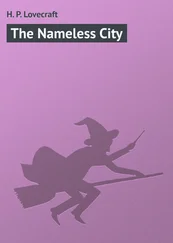Maurus Jokai - The Nameless Castle
Здесь есть возможность читать онлайн «Maurus Jokai - The Nameless Castle» весь текст электронной книги совершенно бесплатно (целиком полную версию без сокращений). В некоторых случаях можно слушать аудио, скачать через торрент в формате fb2 и присутствует краткое содержание. Город: New York, Год выпуска: 1898, Издательство: Doubleday, Page & Company, Жанр: Историческая проза, на английском языке. Описание произведения, (предисловие) а так же отзывы посетителей доступны на портале библиотеки ЛибКат.
- Название:The Nameless Castle
- Автор:
- Издательство:Doubleday, Page & Company
- Жанр:
- Год:1898
- Город:New York
- ISBN:нет данных
- Рейтинг книги:4 / 5. Голосов: 1
-
Избранное:Добавить в избранное
- Отзывы:
-
Ваша оценка:
- 80
- 1
- 2
- 3
- 4
- 5
The Nameless Castle: краткое содержание, описание и аннотация
Предлагаем к чтению аннотацию, описание, краткое содержание или предисловие (зависит от того, что написал сам автор книги «The Nameless Castle»). Если вы не нашли необходимую информацию о книге — напишите в комментариях, мы постараемся отыскать её.
The Nameless Castle — читать онлайн бесплатно полную книгу (весь текст) целиком
Ниже представлен текст книги, разбитый по страницам. Система сохранения места последней прочитанной страницы, позволяет с удобством читать онлайн бесплатно книгу «The Nameless Castle», без необходимости каждый раз заново искать на чём Вы остановились. Поставьте закладку, и сможете в любой момент перейти на страницу, на которой закончили чтение.
Интервал:
Закладка:
The woman was shivering with a chill—or was it the result of extreme terror? If the former, then a little medicine would soon help her; but if it was terror, there was no remedy for it.
To all questions she returned but the one answer: “Oh, my God! my God!”
The baroness and Count Vavel now returned to the outer room.
“I regret very much, baroness, that you have had an unpleasant experience like this—here in our peaceful neighborhood, where every one is so honest that you might leave your purse lying out in the court; no one would take it.”
The baroness laughingly interrupted him:
“The robber adventure amused more than it frightened me. All my life I have wanted to see a real Hungarian robber, of whom the Viennese tell such wonderful tales. My wish has been gratified, and I have had a real adventure—the sort one reads in romances.”
“Your romance might have had a sorrowful conclusion,” responded Count Ludwig, seriously.
“Yes—if Heaven had not sent a brave deliverer to my rescue.”
“You may well say Heaven sent him,” smilingly returned the count; “for if there had not been an eclipse of the moon to-night, which I was observing through my telescope, and at the same time taking a look about the neighborhood, I should not have seen the masked men enter the manor.”
“What!” in astonishment exclaimed the baroness; “you saw the men through a telescope? Truly, I shall have to be on my guard in future! But,” she added more seriously, lifting from the table the count’s walking-stick, toward which he had extended his hand, “before you go I want to beg a favor. Please do not mention the occurrence of this night to any one. I don’t want the authorities to make any inquiries concerning the attempted robbery.”
“That favor I grant most willingly,” replied Count Vavel, who had not the least desire for a legal examination which would require him to tell who he was, what he was, whence he came, and what he was doing here.
“I can tell you why I don’t want the affair known,” continued the baroness. “The woman in yonder is the one of whom I wrote you some time ago—the wife of Ladislaus Satan, or, as he is called, Satan Laczi. Should it become known that a robbery was attempted here, the villagers will say at once, ‘It was the wife of the robber Satan Laczi who helped the men to rob her mistress,’ and the poor woman will be sent back to prison.”
“And do you really believe her innocent?”
“I can assure you that she knew nothing about this matter. I shall not send her away, but, as a proof that I trust her entirely, shall let her sleep in the room next to mine, and let her carry all my keys!” To emphasize her declaration, she thumped the floor vigorously with Vavel’s iron-ferruled stick.
Involuntarily the count extended his hand to her. She grasped it cordially, and, shaking it, added: “Don’t speak of our meeting to-night to any one; I shall not mention it, I can promise you! And now, I will give you your stick; I am certain some one at home is anxious about you. God be with you!”
At home Count Vavel found Henry on guard at the door of Marie’s room, his musket cocked, ready for action.
“Did anything happen here?” asked the count. “Did Marie waken?”
“No; but she called out several times in her sleep, and once I heard her say quite distinctly: ‘Ludwig, take care; she will bite!”
Count Vavel could not deny that his fair neighbor had made a very favorable impression on him. In astronomy she had taken the place of the moon, in classic literature that of an ideal, and in metaphysics that of the absolutely good.
He had sufficient command of himself, however, to suppress the desire to see her again. From that day he did not again turn his telescope toward the neighboring manor. But to prevent his thoughts from straying there was beyond his power. These straying thoughts after a while began to betray themselves in his countenance and in his eyes; and there are persons who understand how to read faces and eyes.
“Are you troubled about anything, Ludwig?” one day inquired Marie, after they had been sitting in silence together for a long while.
Ludwig started guiltily.
“Ye-es; I have bad news from abroad.”
Such a reply, however, cannot deceive those who understand the language of the face and eyes.
One afternoon Marie stole noiselessly up to the observatory, and surprised Ludwig at the telescope.
“Let me see, too, Ludwig. Are you looking at something pretty?”
“Very pretty,” answered Ludwig, giving place to the young girl.
Marie looked through the glass, and saw a farm-yard overgrown with weeds. On an inverted tub near the door of the cottage sat a little old grandmother teaching her grandchildren how to knit a stocking.
“Then you were not looking at our lovely neighbor,” said Marie. “Why don’t you look at her?”
“Because it is not necessary for me to know what she is doing.”
Marie turned the telescope toward the manor, and persisted until she had found what she was looking for.
“How sad she looks!” she said to Ludwig.
But he paid no attention to her words.
“Now it seems as though she were looking straight into my eyes; now she clasps her hands as if she were praying.”
Ludwig said, with pedagogic calmness:
“If you continue to gaze with such intensity through the telescope your face will become distorted.”
Marie laughed. “If I had a crooked mouth, and kept one eye shut, people would say, ‘There goes that ugly little Marie!’ Then I should not have to wear a veil any more.”
She distorted her face as she had described, and turned it toward Ludwig, who said hastily: “Don’t—don’t do that, Marie.”
“Is it not all the same to you whether I am ugly or pretty?” she retorted. Then, as if to soften the harshness of her words, she added: “Even if I were ugly, would you love me—as the fakir loves his Brahma?”
Ludwig continued his correspondence with the learned Herr Mercatoris. He always dictated his letters to Marie. No one in the neighborhood had yet seen his own writing. Therefore, it would have been impossible for him to ask the pastor anything relating to the baroness without Marie knowing it. In one of his letters, however, he inquired how the mother of the lad he had once had in his care was conducting herself at the manor, and was informed that the woman had disappeared—and without leaving any explanation for her conduct—a few days after the eclipse of the moon. The baroness had been greatly troubled by the woman’s going, but would not consent to having a search made for her, as she had taken nothing from the manor.
This incident made Count Vavel believe that the woman had secretly joined the band of robbers, and that there would be another attempt made sometime to break into the manor.
From that time the count slept more frequently in his observatory than he did in his bedchamber, where an entire arsenal of muskets and other firearms were always kept in readiness.
One evening, when he approached the door of his room, he was surprised to see a light through the keyhole; some one was in the room.
He entered hastily. On the table was a lighted candle, and standing with his back toward the table was a strange man, clad in a costume unlike that worn by the dwellers in that neighborhood.
For an instant Count Vavel surveyed the stranger, who was standing between him and his weapons; then he demanded imperiously:
“Who are you? How came you here, and what do you want?”
“I am Satan Laczi,” coolly replied the man.
On hearing the name, Count Vavel sprang suddenly toward the robber, and seized him by the arms. The fellow’s arms were like the legs of a vulture—nothing but bone and sinew. Count Vavel was an athletic man, strong and powerful; but had the room been filled with men as strong and powerful as he, and had they every one hurled themselves upon Satan Laczi, he would have had no difficulty in defending himself. He had performed such a feat more than once. This evening, however, he made no move to defend himself, but looked calmly at his assailant, and said: “The Herr Count can see that I have no weapons; and yet, there are enough here, had I wanted to arm myself against an attack. I am not here for an evil purpose.”
Читать дальшеИнтервал:
Закладка:
Похожие книги на «The Nameless Castle»
Представляем Вашему вниманию похожие книги на «The Nameless Castle» списком для выбора. Мы отобрали схожую по названию и смыслу литературу в надежде предоставить читателям больше вариантов отыскать новые, интересные, ещё непрочитанные произведения.
Обсуждение, отзывы о книге «The Nameless Castle» и просто собственные мнения читателей. Оставьте ваши комментарии, напишите, что Вы думаете о произведении, его смысле или главных героях. Укажите что конкретно понравилось, а что нет, и почему Вы так считаете.












